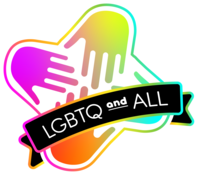Your Past Doesn’t Have To Control You
If you’re human, you’re not exempt from experiencing something painful in your life. Maybe you’ve lost a loved one, experienced hardships in childhood, had major perceived disappointments or failures, or even physical injuries or health issues. Painful experiences are bound to happen in this challenging world we live in. Maybe you’ve been able to talk about your painful experiences or have come to terms with it some way, which turned the painful experience into something that contributes positively to your life or sense of self. Painful experiences, when adaptively responded to and resolved, can shift our perceptions and make us stronger, leading to positive changes in our thoughts, beliefs, feelings and behaviors.
On the other hand, when painful experiences become too overwhelming to manage or there is a lack of a healthy emotional foundation or poor coping skills learned growing up, you might find it more difficult to process and make sense out of what happened. Unresolved painful experiences from the past, also known as “trauma,” can have major effects on our perceptions and impressions of the world, which tend to follow us throughout our lives. The experiences that we have in our life, positive or negative, directly affect the beliefs we have about ourselves and beliefs we have about life that can alter our role in the world, and how we interact with ourselves and other people. If the mind doesn’t have the opportunity to digest a traumatic experience, it will hold on to the perceptions that were created at the time of the negative experience and “overlay” them onto future experiences. Some common negative beliefs that can result from unprocessed trauma include:
I am not good enough
I am bad
I’m a bad person
I deserve to be punished
I am permanently damaged
It’s my fault
I don’t deserve to live
I am not safe
I’m unworthy
I don’t deserve love
I’m a failure
Our unresolved, painful experiences hold the key to what we negatively believe about ourselves. In situations where there’s extensive trauma, childhood abuse, neglect, on-going strife, or adversity, we may come to believe “I don’t deserve to be happy” or “I don’t deserve good things,” which may thwart any attempts to reach out for help or therapy. We may also develop addictions to cope, or to escape from the pain of the trauma and the narrative it’s created.
With a solid foundation of trust, safety, and support, however, painful experiences can be processed and integrated to provide a person with a newfound understanding and sense of strength about themselves. Through exploring the difficult emotions and thoughts about the traumatic experience, the mind recognizes what can be learned or gained from the situation and those destructive, negative beliefs are transformed into positive beliefs, shifting to a more empowered response about what happened. Some positive beliefs that are generated from resolving trauma include:
I am enough
I am good
I’m a good person
I deserve good things
I am OK as I am
I did the best I could
I deserve to be happy
I am safe now
I am worthy
I deserve love
I am successful
You don’t have to hide from your past or let it control you. There are many ways to process and heal trauma, including EMDR therapy, which is an empirically supported treatment. Talk about it with a trusted professional, friend, or safe support.
For a list of different types of therapies available check out these articles by the American Psychiatric Association (APA), National Alliance on Mental Illness (NAMI), and Veterans Affairs (VA).
If you’re ready to work on your unresolved trauma, reach out to one of our licensed trauma therapists: Contact Us





